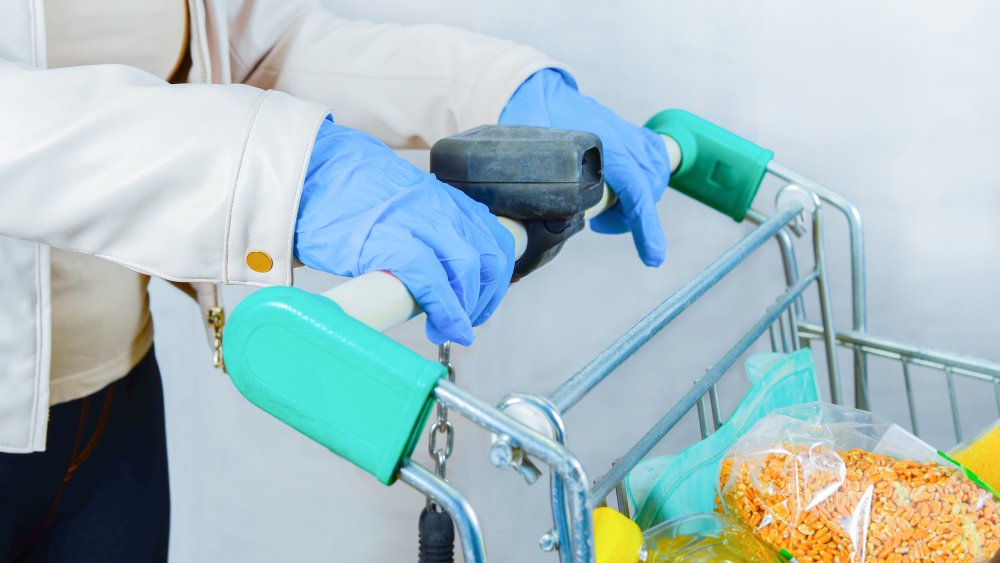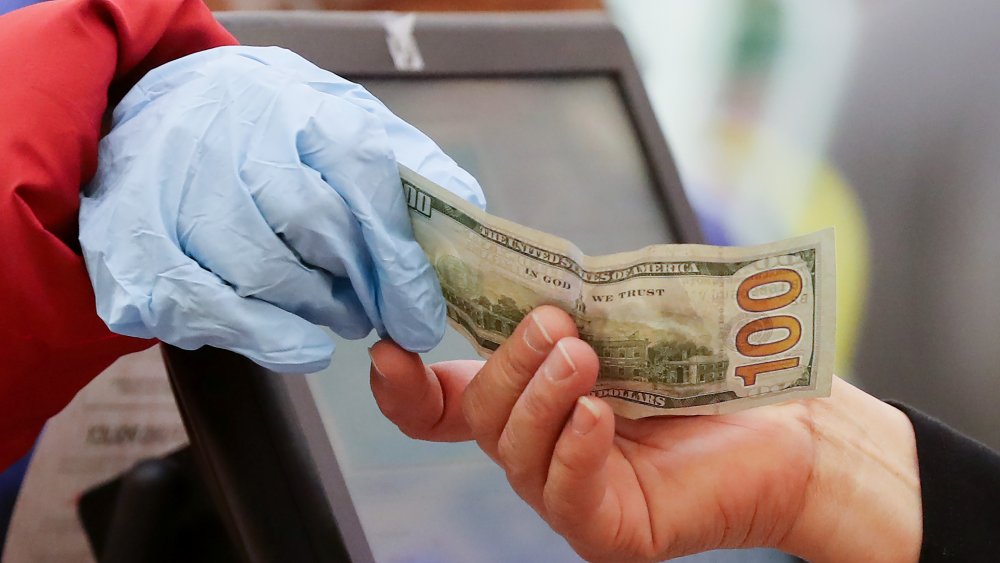Do You Really Need To Wear Gloves At The Grocery Store?
As the coronavirus pandemic appears to be at or nearing peak intensity, many of us are trying to keep ourselves (and others) safe by practicing social distancing and staying at home if at all possible. But we've all still got to eat, don't we? And it isn't always possible to put off going to the grocery store, particularly if you're unable to get a grocery delivery slot — Amazon Fresh and Whole Foods are limiting their customer base, and other grocery delivery services are also overwhelmed as demand for delivery continues to soar. So what can you do to best protect yourself from infection, and/or keep your germs to yourself?
The CDC is now recommending that we all should wear some type of cloth face mask or covering when we leave the house, particularly in areas such as grocery stores where social distancing is hard to maintain despite grocery chains such as Aldi implementing safety measures of their own. What they do not recommend, however, is wearing gloves. The CDC only recommends that gloves be used for household cleaning and by healthcare workers. It seems that gloves, in most instances, do nothing whatsoever to protect us against the spread of COVID-19.
Why don't gloves work to prevent infection?
As infectious disease specialist Jaimie Meyer, MD, assistant professor of medicine at Yale School of Medicine, told Health, COVID-19 enters the body through the respiratory tract and cannot be contracted simply by touching infected surfaces. The virus is mostly spread through inhaling infected droplets breathed out by another person, but there is a small possibility of contracting COVID-19 from touching a surface where the virus lives and then touching your face.
Whether or not your hand is gloved makes no difference as to how the disease is transmitted — the only way that glove might protect you is if you touched the surface and then removed the glove before touching your face. If you have that much control over whether or not you touch your face, the safest thing to do is just stop touching it. The next best precaution is to wash or sanitize your hands every time you touch anything, which is as plausible a scenario as remembering to put on and then take off a fresh pair of gloves in the interval between touching any potentially infected item and then touching your face. Not to mention the fact that putting on and then removing those gloves could spread the germs to your bare hands.
Skip the gloves. Keep washing your hands. Cover your face with a mask so you don't touch it. Stay safe, stay strong, and whenever possible, stay home.

